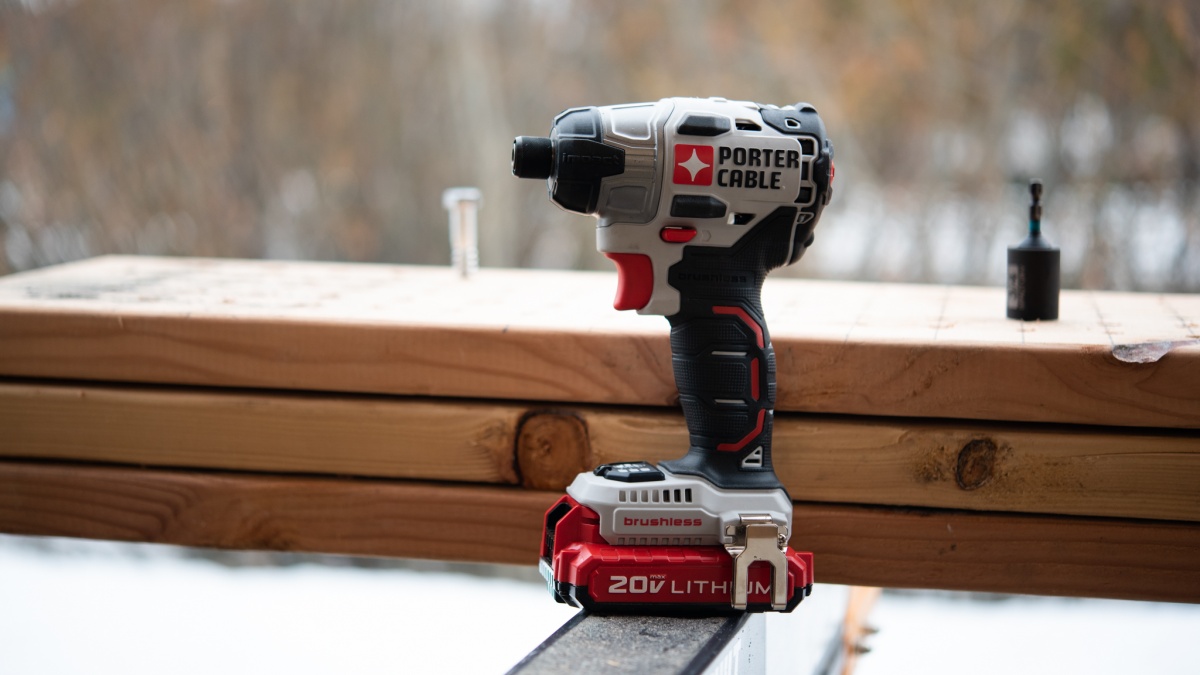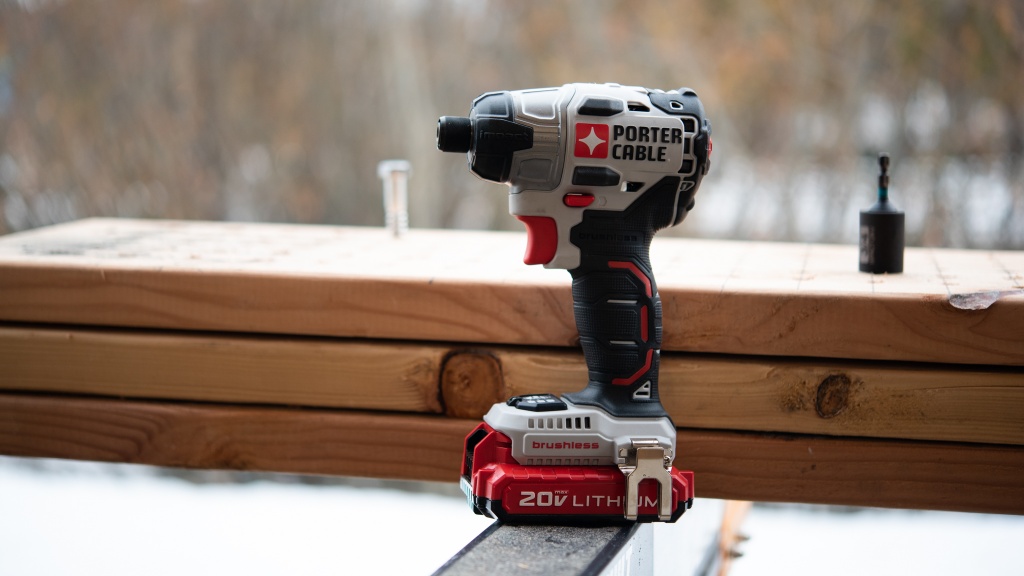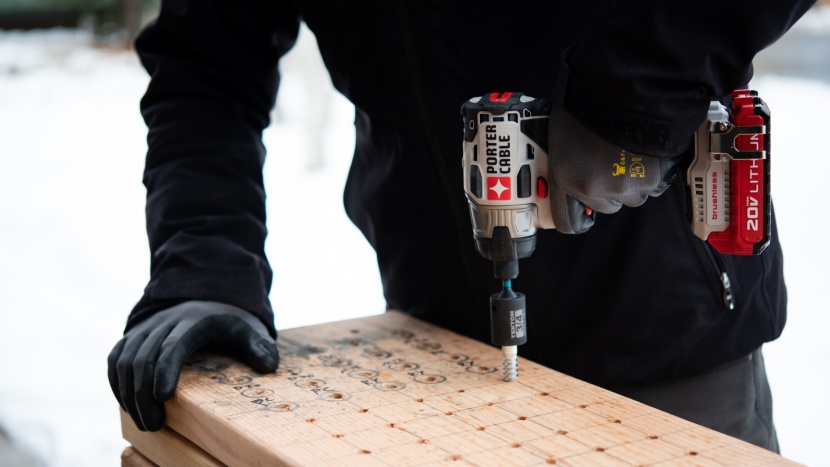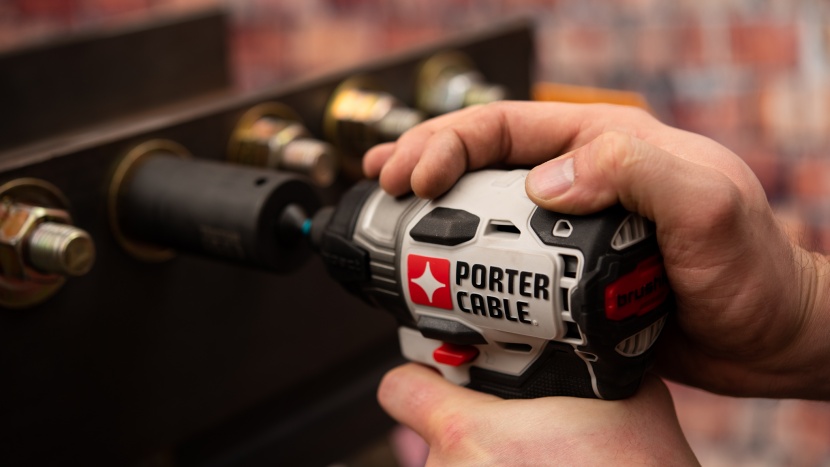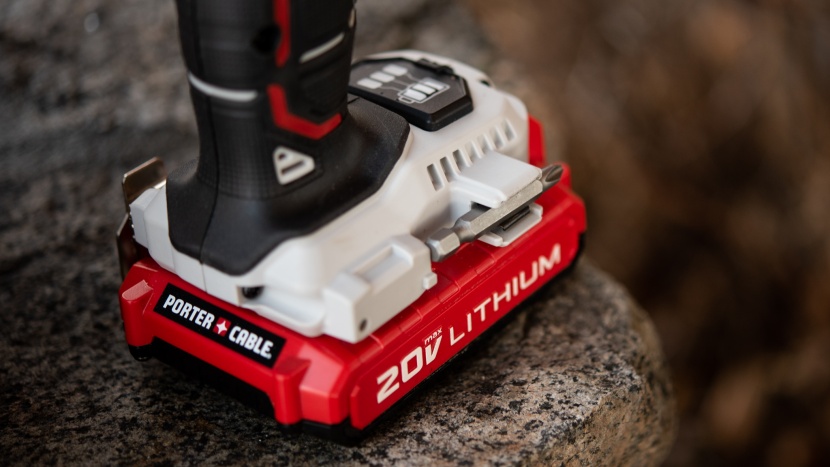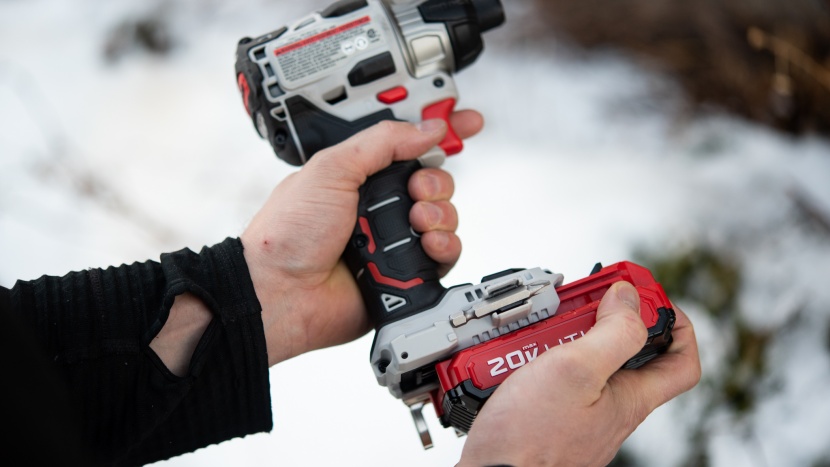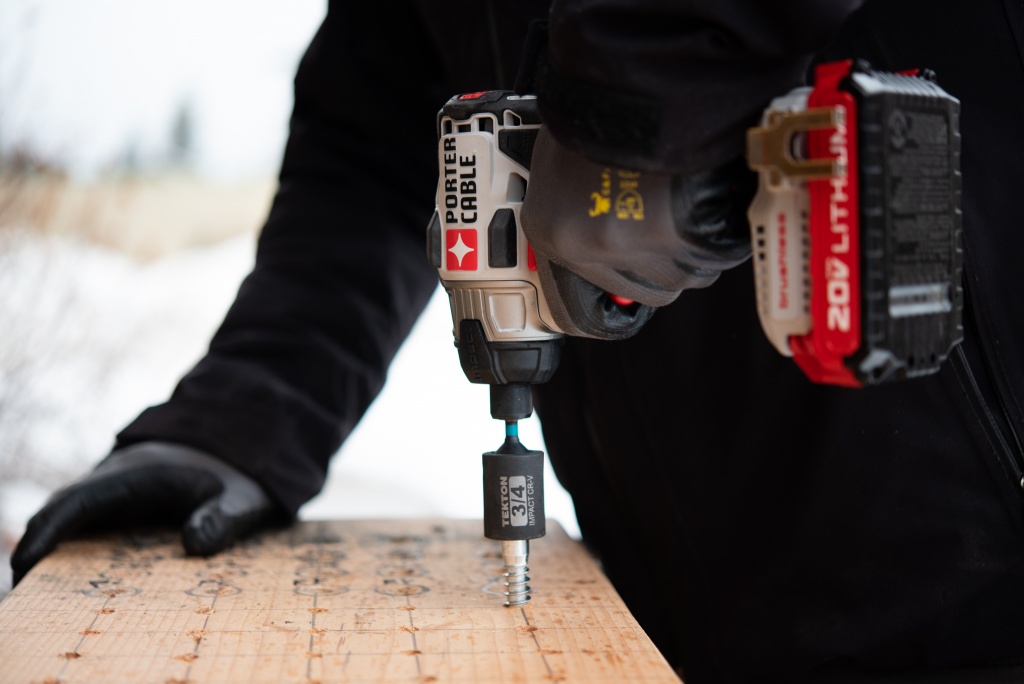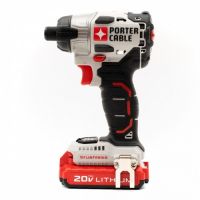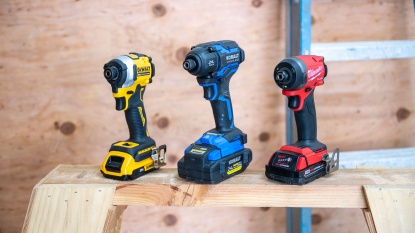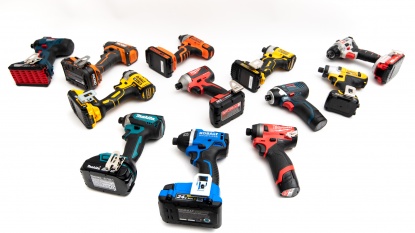
Our Verdict
Our Analysis and Test Results
We think the Porter-Cable PCK647 is a solid option for most DIYers or weekend warrior homeowners but might not have the battery life, speed, or torque required by a pro or an avid DIYer.
Speed
The PCCK647 made an impression on us with its faster-than-average speed at driving in screws, particularly with larger lag bolts. This impact took about 26 seconds to fully set a ½" by 3" lag and 12 seconds to remove it — almost on par with the fastest times of around 15 seconds to insert and six seconds to remove. It also did relatively well in our ledger screw test, only taking an average of four to seven seconds to fully seat a 3-⅝" long screw in stacked 2x12s or plywood. This result is just a bit slower than the best impact drivers, taking only three to four seconds to accomplish the same task.
Torque
We were quite impressed with the performance of the PCCK647 in our torque tests, especially with its great result when it came to cracking loose already tightened fasteners. This impact driver almost held its own with the top tools overall when it came to tightening a nut, falling just a little bit short. It managed to tighten a ¾-10 nut to an average of 257-foot pounds, but we found it far less consistent than other products. Our results with the Porter-Cable PCCK647 ranged from a maximum tightening torque of 200-foot pounds up to 300-foot pounds throughout our tests — a much larger range than the typical 10- to 15-foot pounds we saw with the other tools in the review. It did match the best products in terms of breaking torque, able to reliably loosen a ¾" nut that had been torqued to 300-foot pounds after about 9 seconds.
Convenience
On top of those solid driving performances, the PCCK647 has some handy features that we found made it much more convenient to use. This impact driver provides a decent amount of light from an LED at the base of the tool that stays on for 20 seconds or so once you let go of the trigger. The bit does cast a small shadow due to the location of the light, but we didn't find this to be too much of an issue.
You don't need to release the locking mechanism when inserting a bit, and this impact isn't overly long, only measuring 147 mm from the end of the chuck to the back of the tool. It even has a built-in holder for an extra bit on the right side of the tool.
Battery
This impact also delivered lackluster results in our battery test. We assessed this by alternating between setting 14 of the 3-⅝" ledger screws to their full depth and then driving in and removing the ½"x3" lag bolt. The PCCK647 only completed three cycles of this before its 1.5 amp-hour battery gave out, whereas the top impact drivers completed over five cycles. We also didn't love that this impact lacks operating modes with different torque settings.
Noise
Our biggest gripe with the Porter-Cable PCCK647 is the amount of noise it generates for the operator while in use. We measured an average of 98 decibels at ear height for the person using it. This can exceed what is typically considered acceptable sound levels without hearing protection, depending on how long you are using the tool, so you should always follow the manufacturer's recommendations for proper personal protective equipment.
Should You Buy the Porter-Cable PCCK647?
The Porter-Cable PCCK647 delivered decent results when it comes to speed and torque, combining that with an average battery test result and a solid set of features to make it quite user-friendly. We think it's a fairly uninspiring impact driver, but it should get most jobs done without too much difficulty. It could be a great addition to a DIYer's tool arsenal, especially if you already own some other cordless tools with a compatible battery system.
What Other Impact Drivers Should You Consider?
While we didn't think the PCCK647 is necessarily the best value option, if you already own tools that work on this battery platform, you can save some dough by buying the bare tool without the battery and charger. But if you are just building your tool kit and want to prioritize battery life, we suggest looking at the Makita XDT13 driver.
| Awards | |
|---|---|
| Price | $150 List Check Price at Amazon |
Overall Score  |
|
| Star Rating | |
| Bottom Line | This run-of-the-mill tool failed to win any accolades but should do a decent job with most products |
| Pros | Solid torque, decently speedy, convenient to use |
| Cons | Loud, battery life could be better |
| Rating Categories | Porter-Cable PCCK647 |
| Speed (35%) | |
| Torque (25%) | |
| Convenience (20%) | |
| Battery (15%) | |
| Noise (5%) | |
| Specifications | Porter-Cable PCCK647 |
| Average Measured Total Time for Lag Bolt Test | 32 seconds |
| Average Measured Time: Plywood Ledger Screw Test | 7 seconds |
| Average Measured Fastening Torque | 257 ft-lb |
| Average Measured Breaking Torque | 300 ft-lb |
| Measured Length | 147 mm |
| Average Measured Decibels While Using | 98 dBa |
| Impact Driver Model # | PCC647 |
| Quick Bit Insert | Yes |
| Bit Holder | Yes |
| Multiple Fastening Modes | No |


